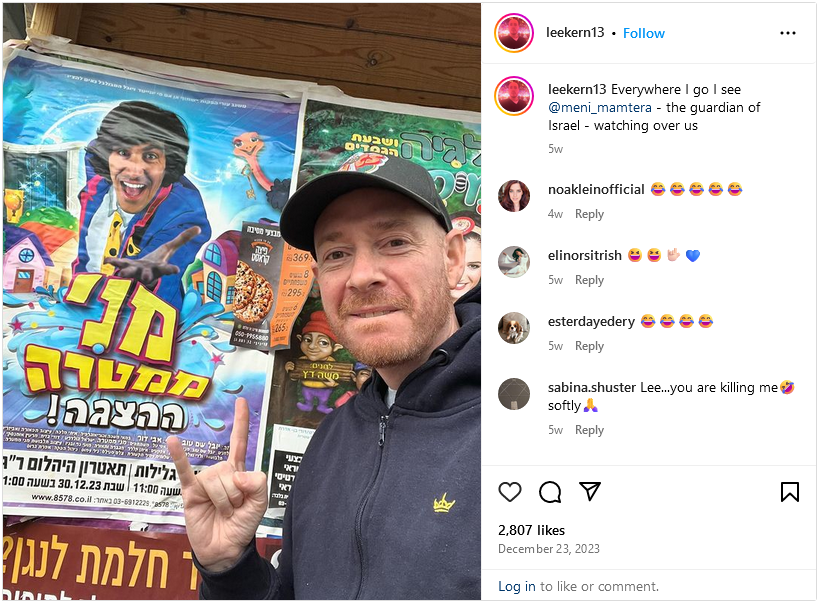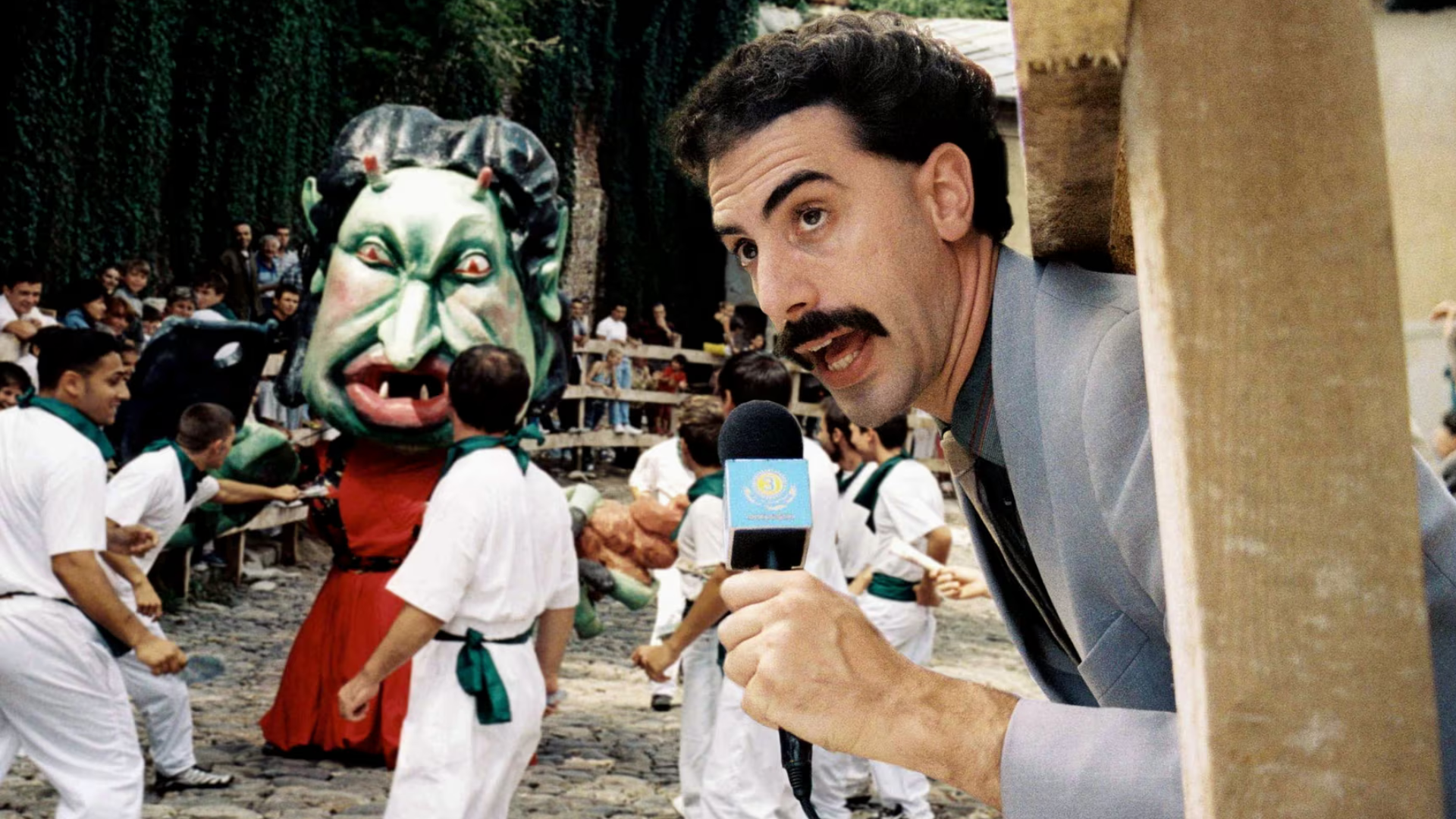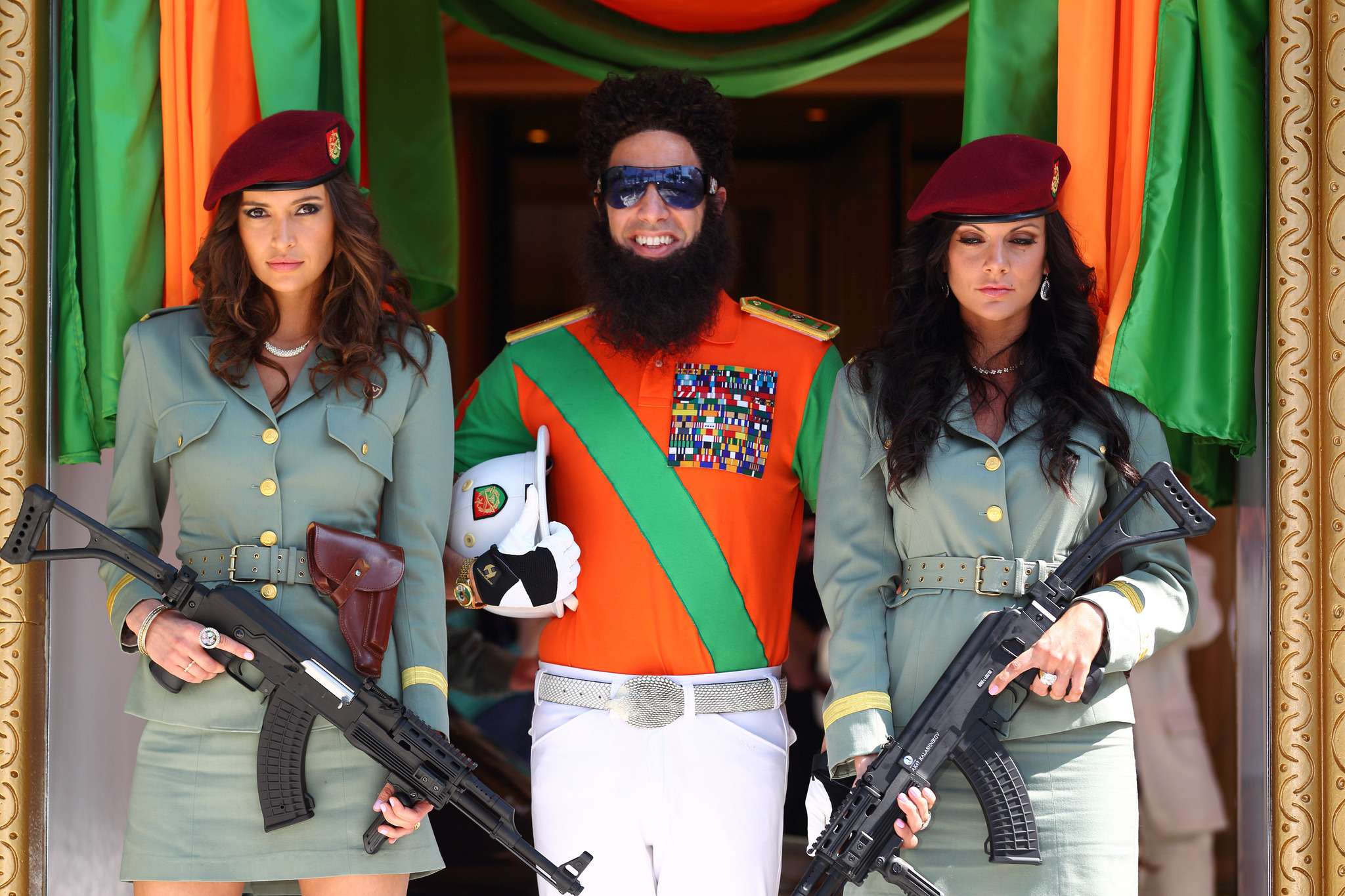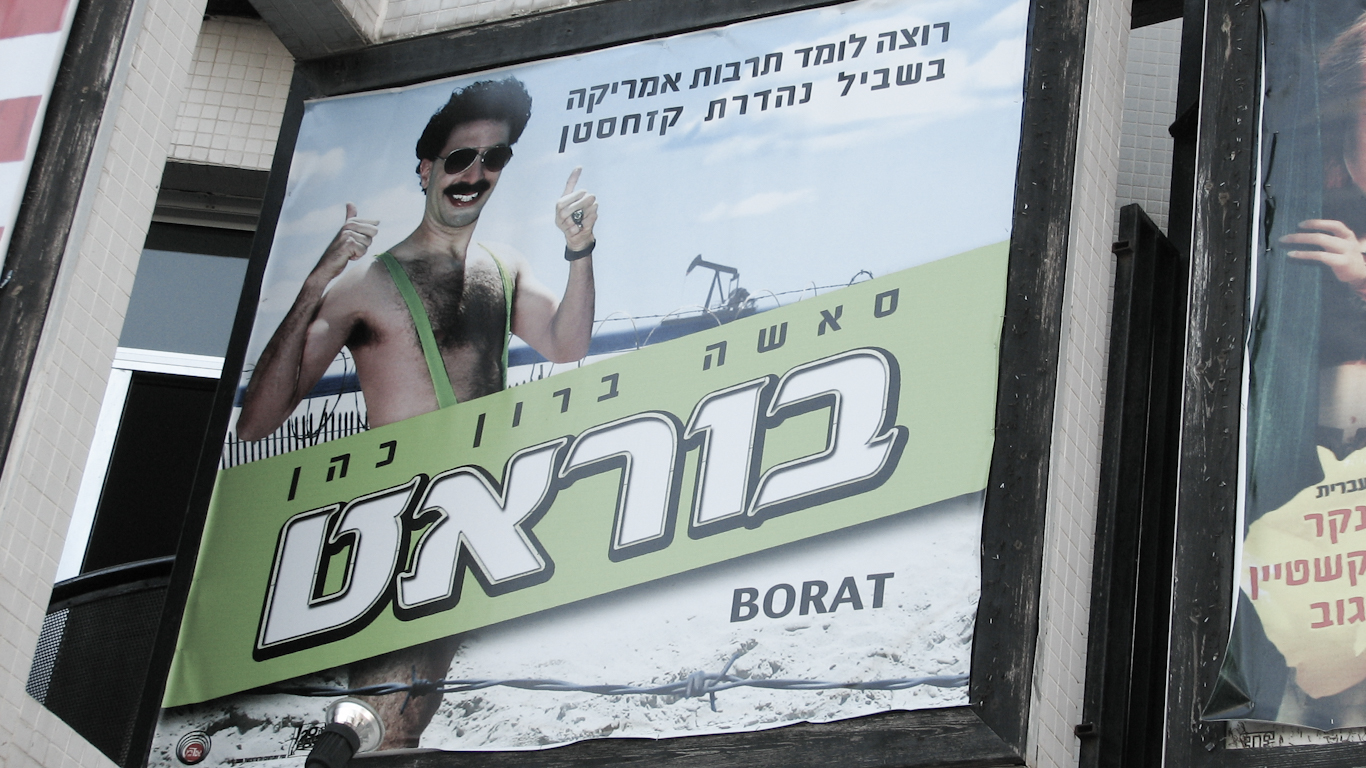In the wake of the International Court of Justice’s (ICJ) landmark ruling in a case brought by South Africa against Israel, which found the Jewish state could be committing genocide in Gaza and must immediately cease its indiscriminate, industrial-scale slaughter of unarmed, innocent Palestinians of all ages, many Western journalists, politicians, pundits and influencers have changed their tune on the savagery. Or at least gone eerily silent, having previously whitewashed, legitimized, or even outright endorsed a twenty-first-century Holocaust.
This abrupt volte-face cannot be attributed to any moral qualms about Zionist actions since October 7. A far more likely explanation is that, given numerous statements of Israeli officials that the ICJ has found to indicate genocidal intent, they are worried their past advocacy and amplification of as yet unindicted war criminals could, in the future, be in itself legally actionable. Yet, some Zionist propagandists and apologists have not been deterred by the ruling’s ramifications.
Among the most vocal figures continuing to celebrate and encourage the Gaza genocide is Lee Kern, a self-described comedian who served as the lead writer for numerous high-profile cinema and TV projects led by Sacha Baron Cohen, including the sequel to “Borat,” and “Who Is America?” On a daily basis, since the Israeli Occupation Force carnage erupted, he has posted disgustingly Islamophobic statements while cheering and justifying Zionist bloodshed.

At the end of 2023, Kern also visited Tel Aviv to co-host an event, “Israel we F*cking Love You,” alongside Michael Rapaport, a failed actor and convicted harasser turned wannabe culture warrior. The Zionist entity has attracted numerous Z-list celebrities to its stolen land in recent months, including unrepentant pedophile Jerry Seinfeld, in a lame attempt to boost its PR. Given Cohen’s ardent Zionism, it is rather conspicuous he has not made the journey.
Nonetheless, Cohen has been playing an active role behind the scenes in the genocide. In November 2023, he was among several high-profile figures who lobbied TikTok in private to block content and comments critical of Israel. He had good reason to believe this intervention would be decisive. In September 2020, he suspended his Instagram account to protest purported “hate speech” on the platform and Facebook. The Anti-Defamation League-sponsored action prompted over 1,000 businesses to suspend their Facebook ads for a month.
Cohen has, in recent years, significantly upped the ante of his public Zionist activism under the aegis of fighting anti-Semitism. He has claimed his “comedy” output, often coordinated with the CIA and Pentagon, is concerned with the same objective. This work almost universally features racist, crude stereotypes of Muslims, whom he portrays wearing makeup and wigs reminiscent of blackface. One might reasonably ask whether his true purpose all along has been to dehumanize Muslims everywhere in order to justify Israel’s genocide.
‘Kazakh Censors’
Perhaps the most well-known – or infamous – segment of Cohen’s 2006 smash hit movie Borat is a scene very early on, in which he and a vast crowd spectate “the running of the Jew,” a purported annual Kazakhstan tradition. Easily the movie’s most impactful and memorable visual setpiece, standalone clips have garnered millions of views online since 2006. A virtually unique example of the film not featuring an “undercover” stunt, who were Cohen’s ultimate intended victims and audience here?
Giant, grotesque constructions of a Jewish man and woman replete with green skin, claws, devil horns, and pronounced hooked noses race down a dirt track after Kazakhs waving wads of money. When the female “Jew” stops mid-chase to spawn a gigantic “Jew egg,” Borat cheers on a gaggle of children who abruptly arrive to “crush that Jew chick before it hatches!” This scene is central to the film’s plot – if one can even refer to it as such.

Innate Kazakh anti-Semitism is the very inspiration for Borat’s “cultural learnings” tour around the U.S. As he explains immediately after the scene, his country faces three major problems – “social, economic, and Jew.” Throughout the movie, Borat invokes numerous hideous anti-Semitic tropes – Jews are greedy, secretly control international finance, governments and the media, and were responsible for 9/11. At one point, he even sings a supposedly popular Kazakh folk song titled “Throw the Jew down the Well.”
In all of Cohen’s in-character public appearances at the time, Borat made his visceral loathing of Jews abundantly clear. In November 2006, he was a guest on “The Tonight Show with Jay Leno,” an interview subsequently included on the film’s DVD edition. When asked by the host whether he thought his film was homophobic and anti-Semitic, Borat gleefully replied, “Thank you very much!” Meanwhile, at an advance screening of the movie in Manhattan, he declared to the assembled press and paparazzi:
At first, Kazakh censors wouldn’t let me release this movie because of anti-Semitism. But then they decided that there was just enough.”
The Amazon-produced “Borat Subsequent Moviefilm” in 2020 dialed up the main character’s rabid anti-Semitism even further. In one scene, he attends a synagogue dressed in anti-Semitic clothing, including a giant fake nose, and announces he saw a Facebook post claiming the Holocaust never happened. Judith Dim Evans, a Holocaust survivor present, greets him warmly, invites him to touch her own “Jewish nose,” and then proceeds to politely educate him about the realities of Nazi genocide while highlighting her personal history.
Understandably, many viewers effusively praised Evans’ dignity and grace. Cohen has claimed that before filming the scene, he broke character in private with her to explain he was himself Jewish, and his objective was to highlight anti-Semitic attitudes and the correct way of challenging them – supposedly the very first time one of his “victims” had been in on the gag all along. Evans herself was unable to confirm this version of events, as she sadly passed away before the film’s release.
Her daughter begged to differ, however, and filed a lawsuit against Amazon, seeking an injunction to remove the scene from the film. She contended her mother was duped into appearing in the movie and pointed to a release form allegedly signed by Evans featuring a “scribbled line” that did not match her actual signature. Amazon’s lawyers successfully argued this was a simple accident and that her signing of the document had been independently witnessed.
‘Vibrant Jewish Community’
Whatever the truth of the matter, clearly, Cohen is extremely keen for his creation to be perceived by the everyday people he meets and global film audiences alike as a raging anti-Semite. This has prompted some observers to question whether, in attempting to highlight and challenge anti-Semitism, Borat might, in fact, inadvertently reinforce anti-Semitic public attitudes. A far more prescient question is whether Borat consciously legitimizes Islamophobic perspectives globally in service of the Zionist cause.
The release of the first “Borat” movie sparked public and state-level outrage in Kazakhstan for its portrayal of the country and its people. Ironically enough, a common grievance was the character’s anti-Semitism – for Kazakh Jews have a long and rich history, and Almaty has no record of religious strife or discrimination towards Jews whatsoever. During World War II, Joseph Stalin created a haven for Jews there, evacuating thousands from other parts of the Soviet Union to prevent their slaughter by the Nazis.
While Kazakhstan’s Jewish population was much reduced by emigration following the Soviet Union’s collapse, thousands still live in peace and harmony there today. A Hasidic synagogue in Almaty, named after widely respected Rabbi Levi Yitzchak Schneerson, buried at a nearby cemetery, attracts Jewish visitors from all over the world, who come to pray at his grave. Anti-Semitic incidents of any kind are vanishingly rare; the country is home to over a dozen Jewish schools, and the government electively provides land and buildings for creating new synagogues.
As a National Coalition Supporting Eurasian Jewry factsheet notes, “Kazakhstan has long embraced its Jewish community.” During “Borat’s” year of release alone, a new synagogue big enough to accommodate the capital’s entire Jewish population – and also Central Asia’s largest – was opened, Almaty’s first-ever Association for Hebrew Speakers formed, and the Kazakh government issued a postage stamp featuring a historic local synagogue. The factsheet went on to record:
In the wake of the widely released and successful 2006 comedy film Borat, which portrays Kazakhstan as a hot-bed of anti-Semitism, Kazakh officials are expanding outreach efforts to explain to the world that Kazakhs are in fact very tolerant of Jews.”
As part of these “outreach efforts,” prior to the release of “Borat,” the government of Kazakhstan took out full-page ads in major U.S. newspapers such as The New York Times, and placed commercials on CNN and other mainstream news channels, at some expense. They sought to challenge and debunk the movie’s misrepresentations of Kazakhs, and Borat’s anti-Semitism loomed large. As a spokesperson for Almaty’s Washington D.C. embassy said at the time:
[Borat] claims the Kazakhs are very anti-Semitic people and running of the Jews is the famous pastime. That is, of course, ridiculous. Kazakhstan has a very vibrant Jewish community.”
An ‘Already Islamophobic Climate’
The lack of wider pushback against Borat from the world’s Islamic community almost two decades ago surely reflects how the film was released at a time when Islamophobia was rife in the West due to the then-ongoing War on Terror. Systematic, institutionalized discrimination against and demonization of Muslims was unashamedly and openly normalized, advocated, and practiced by European and North American governments under the aegis of battling “extremism.” Muslim civil society voices were thus very effectively silenced in the mainstream.
Fast forward to the sequel’s release, and Cohen’s victims were finally positioned to fight back. In November 2020, the Council on American-Islamic Relations and Kazakh American Association fired off strongly worded letters to the Directors Guild of America, Oscars, Golden Globes, and British Academy of Film and Television Arts, demanding they bar Cohen, his movie and its cast and crew, from consideration for awards that year.

Commenting, Kazakh-American film professional and Hollywood Film Academy CEO Gia Noortas said:
The Kazakh community worldwide is underrepresented and inherently vulnerable. Sacha Baron Cohen understands this fact and exploits the Kazakh people by hijacking our ethnic identity, whitewashing us, and inciting harassment toward us. Considering today’s socially aware political climate and the new diversity policies adopted by film associations worldwide, it is unbelievable that a film which openly berates, bullies, and traumatizes a nation of people of color is still an acceptable form of entertainment.”
As a fiery contemporary op-ed in The New Arab noted via “Borat,” “Cohen racially abuses, culturally appropriates, and mocks the Kazakh culture, traditions, and people for the purpose of crude laughter and monetary gain” – actions “not only offensive,” but directly harmful, as “Kazakhs know from personal experience.” It went on to record how since the release of the first movie:
Many Kazakhs have experienced psychological turmoil and ethnic-based humiliation. Many Kazakhs have had to explain to others that Cohen’s portrayal of Kazakhstan and its people as bigoted and backwards is a vile misrepresentation. Many Kazakh children have been bullied at school, and Kazakh women have been exposed to distasteful sexual jokes or harassment.”
Again, we are left to ponder if Cohen explicitly intended these dire consequences. A 2016 academic paper published by Brunel University explored how audiences perceived the portrayal of Muslims across his oeuvre based on an extensive focus group study. Overwhelmingly, respondents expressed dismay at the content and volunteered their view that the assorted movies and TV shows Cohen produced throughout his three-decade-long career are, universally, intensely Islamophobic.
For example, one respondent asked to comment on the “Running of the Jew” clip, said it “enforces this opinion that Muslims are anti-Semites.” The study noted that “The Dictator” was “replete with signifiers that are stereotypic of Islam and Muslims – from the name ‘Aladeen,’ his long beard, misogyny, anti-Semitism, and anti-Americanism,” and “the film also displays minarets and thus typical Islamic architecture.” Another respondent observed:
If you look at all his movies, he does portray himself as a Muslim. So, I think there is an element of Islamophobia. The Dictator, Ali G, these are all Muslims and so he’s portraying them in a bad light, in an already Islamophobic climate.”
An Unsafe Space
Such adverse reactions are striking, for they would be music to the proverbial ears of Israel and the international Zionist lobby’s countless assorted components. Perpetuating the narrative that all Muslims worldwide are possessed of virulent anti-Jewish hatred has been a core Zionist propaganda objective since before Israel’s 1948 founding.
The purpose is to frame Palestinian opposition to Zionist oppression, and anyone Muslim or otherwise united in solidarity with them, as motivated by surging anti-Semitism rather than reasonable and legitimate condemnation of oppression, brutality, and mass slaughter in service of a fundamentally colonialist, genocidal, and deeply anti-Semitic endeavor. Accordingly, Israel has, ever since its founding, actively sought to create a hostile environment for Jews elsewhere in order to cynically cement itself as the world’s exclusive safe space for Jews.
Following Israel’s creation, a Mephistophelian feat achieved by murderous conquest, land theft, and the clandestine use of chemical and biological weapons, Zionists engaged in wide-ranging efforts to compel Jews elsewhere to migrate to Tel Aviv. This effort included covertly bombing synagogues throughout West Asia, encouraging anti-Semitism the world over through a variety of means, and infiltrating and funding Amnesty International to amplify and exaggerate anti-Semitism in Muslim lands from the 1970s onwards while concealing its criminal erasure of Palestine and its indigenous people.
The necessity of such actions from Israel’s perspective couldn’t be clearer. It is barely known today that a majority of world Jewish opinion actively opposed Israel’s creation. The 1917 Balfour Declaration, which pledged London’s commitment to creating a “national home for the Jewish people” and is widely considered the Zionist state’s foundational document, was vigorously condemned by Edwin Montagu, the only Jew in a senior British government position at the time:
The policy of His Majesty’s Government is anti-Semitic in result and will prove a rallying ground for anti-Semites in every country of the world.”
Montagu’s concerns were well-founded. Zionists, professing to be inspired by ubiquitous Western anti-Semitism, were and remain committed to building an ethnonationalist homeland for Jews in the Arab and Muslim world – the one place on Earth where Jews have always been safest. It is widely unknown that the only European country, bar Britain, to boast a bigger Jewish population following World War II than before was Muslim-majority Albania. It provided a sanctuary for Jews fleeing the Holocaust elsewhere in Europe.
Many Albanians are considered “Righteous Among Nations” for risking their lives to protect Jews during the genocidal Axis occupation of the Balkans, 1941 – 1944. A great many Jews had for centuries resided in the region by that point, having been invited to relocate there under Ottoman Sultan Bayezid II’s personal protection following the fall of Al Andalus to Christian crusaders in 1492. They flourished, free from the routine pogroms, discrimination, and punitive taxes inflicted upon them everywhere else in Europe.
Since the Gaza genocide began, shocking scenes reminiscent of 1930s Germany, in which Israeli security forces storm areas of Jerusalem, physically attacking Hasidic Jews and tearing down Palestine flags, have spread like wildfire on social media. Meanwhile, Jews can consistently be found in profusion at every major anti-Israel protest in Europe and North America, very vocally denouncing not only Tel Aviv’s relentless atrocities but the entire “Godless and merciless” ideology of Zionism.
Sacha Baron Cohen’s canon should be viewed as a modern-day manifestation of the perpetual Zionist drive to distort and conceal reality and turn Jews and Muslims, natural and historic comrades, against one another. Now that he and close collaborator Lee Kern have so amply exposed their guiding mission quite so publicly, a liberal media apparatus that enthusiastically promoted them and their repulsively racist, genocidal output must not be forgiven or trusted ever again.
Feature photo | A Hebrew poster for the film “Borat” in Tel Aviv. Photo | Yaffa Phillips | Flickr CC
Kit Klarenberg is an investigative journalist and MintPress News contributor exploring the role of intelligence services in shaping politics and perceptions. His work has previously appeared in The Cradle, Declassified UK, and Grayzone. Follow him on Twitter @KitKlarenberg.


